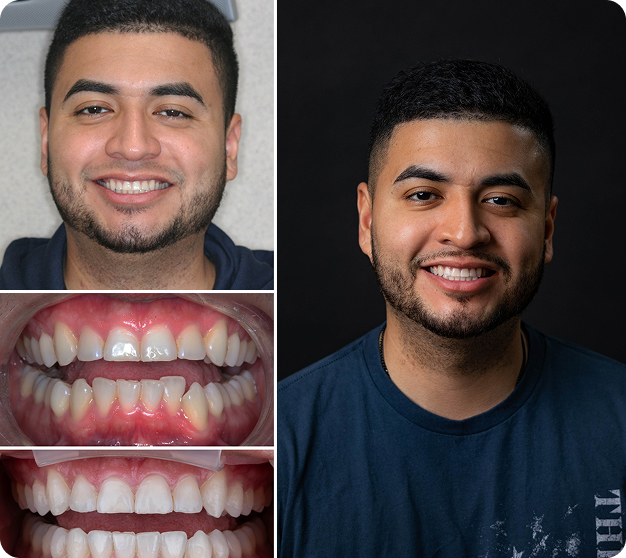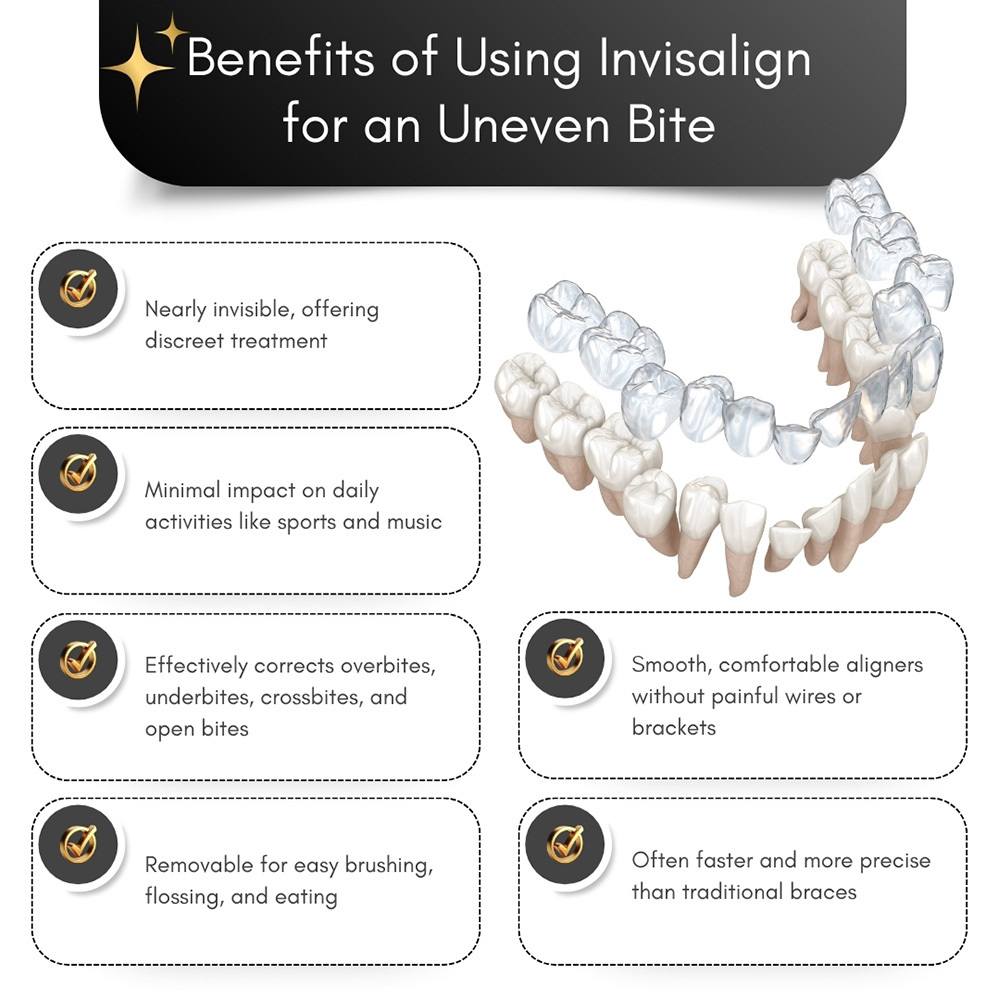What Is Invisalign?
Invisalign is a removable braces system that is very different from traditional braces, yet it can correct many orthodontic issues without needing fixed braces. These include realigning uneven bites. Treatment easily fits into everyday life and is discreet since the aligners are nearly invisible.
This article looks at the problems that can cause an uneven bite, the potential problems that can arise if they are not fixed, and how Invisalign can help.
What Is an Uneven Bite?
An uneven bite means someone has teeth that are misaligned, where their teeth do not meet together properly. This problem is also called poor occlusion or malocclusion. It encompasses a range of different issues that include:
What Can Cause an Uneven Bite?
An uneven bite can be due to a variety of reasons. Sometimes it’s genetic. Other times, it may be due to oral habits like teeth clenching and grinding or a thumb or finger-sucking habit when a child is very young.
Occasionally, it can occur after dental treatment, such as a dental filling. If you have a filling that is slightly too high, it can interfere with your bite. Consequently, you may end up with an uneven bite that feels uncomfortable.
This problem is usually easily resolved. You can return to your dental office so your dentist can examine your teeth and make a small bite adjustment, reshaping the filling so your teeth bite together comfortably.

Should I Fix an Uneven Bite?
A mild malocclusion may not cause any significant symptoms, and you may be able to avoid dental treatment. However, some problems can cause significant discomfort and pain. Unfortunately, some issues will damage your teeth but cause no noticeable symptoms.
Some of the more obvious symptoms of an uneven bite are outlined below.
Discomfort Or Pain When You Close Your Teeth Together
When your bite is correctly aligned, it should be possible to bite down and grind your teeth together as if chewing food without discomfort or pain.
Jaw Joint Problems
If you have problems with your jaw joints, called temporomandibular joints, or have already been diagnosed with TMJ disorder, it may be due to a misaligned bite. An uneven bite can put your jaw joints under pressure, causing them to become inflamed and painful.
Significant Wear and Tear on Your Teeth
If your bite is uneven, you probably bite down on some teeth before others. Some teeth may not come into contact with your opposing teeth at all. In this case, the extra wear and tear on those teeth that can contact each other can cause them to wear down abnormally.
Signs of excess wear and tear include worn or chipped tooth enamel. Due to enamel damage, your teeth may also become more sensitive to hot and cold.
What Our Patients Are Saying
How Can Invisalign Treat Uneven Bite?
Invisalign treatment can help address these problems, bringing your teeth into the proper alignment while potentially improving your smile. Treatment will help protect your jaw joints, resolve issues like TMJ, and avoid further excessive wear and tear on your teeth.
Invisalign is designed to treat a wide range of issues. The custom-made aligners work by placing certain teeth under pressure and gradually moving them through progressive sets of aligners.
3-D digital design and printing technology help ensure a precise and predictable treatment. The aligners are easy to wear and relatively comfortable to use.
Invisalign Process for Treating an Uneven Bite
The process for discovering if your uneven bite can be treated with Invisalign is very straightforward.
- Schedule an appointment with our Invisalign provider, who will gently examine your teeth and jaws to see if this treatment is suitable or if another solution would work better.
- If suitable, we will take a 3-D digital scan of your teeth to create a digital model. Invisalign software is used to plan your custom treatment.
- Once complete, you can view virtual images of your new smile. These simulations show how your teeth are predicted to move during treatment and how they will look when you finish wearing your aligners.
- Once you have approved your treatment plan, we can make your custom aligners and show you how to insert and remove them and take care of them.
- While having Invisalign treatment, it’s important to wear your aligners most of the time. You must wear them for at least 20-22 hours daily for your treatment plan to work properly. Try only to remove them when you eat something or for oral hygiene.
- After two weeks, throw away your current aligners and start wearing the next ones. You follow this routine until you have worn all the sets of aligners in your treatment plan. By this stage, your teeth should be beautifully straight.
- You must return to our Brooklyn Invisalign Center regularly during your treatment, usually every 6 to 8 weeks. These appointments do not take very long, but we must check that your teeth are straightening as predicted and make any small adjustments to the plan if necessary.
Related Articles
- Invisalign vs Breezy Braces
- Invisalign vs SureSmile
- Invisalign vs Clear Braces
- Invisalign vs Traditional Braces
How Long Will It Take to Correct My Uneven Bite?
Until we can examine your mouth, it’s impossible to give you a precise time. It all depends on the problems that need correcting and the extent of the misalignment. Mild malocclusion may take only a few months, but more serious issues will take longer. Your treatment could last 18 months or longer.
“ I’m currently in the process of fixing my teeth with Invisalign. All of the staff are friendly and kind. The office is clean and inviting. I would highly recommend! “

Tiana Jacobs Invisalign Patient
Benefits of Using Invisalign for an Uneven Bite
Using Invisalign to correct an uneven bite can provide some nice benefits, including the following.
- Discreet treatment. Invisalign aligners are nearly invisible. You can see them if you look closely because they can create a slight halo effect around your teeth, but most people will be unaware you are wearing them.
- Easy oral care. Unlike fixed braces, you don’t need to do anything different when brushing and flossing your teeth. There is no need to use different tools or spend longer on your oral care.
- Minimal impact on everyday activities. Because the aligners are removable, they have minimal impact on your everyday life. You can eat whatever you wish and still play sports and musical instruments.
- More comfortable treatment. Fixed braces have brackets and wires that can dig painfully into cheeks, gums, and lips. Invisalign aligners are smooth with no sharp edges, so treatment is more comfortable.

Related Articles
- Invisalign FAQ’s
- Invisalign Alternatives
- Invisalign Candidates
- Invisalign for Front Teeth Protrusion
- Invisalign for Teens
- Invisalign for Teeth Straightening
- Invisalign Cost and Financing
- Dental Retainers
Invisalign can be an excellent choice for an uneven bite, but the only way to know for sure if it can help you is to schedule an appointment with our orthodontist. Dr. Jacqueline Simons will provide her expert opinion on whether Invisalign is the right option or if another treatment will suit you better. Contact our dentistry office for more information.

